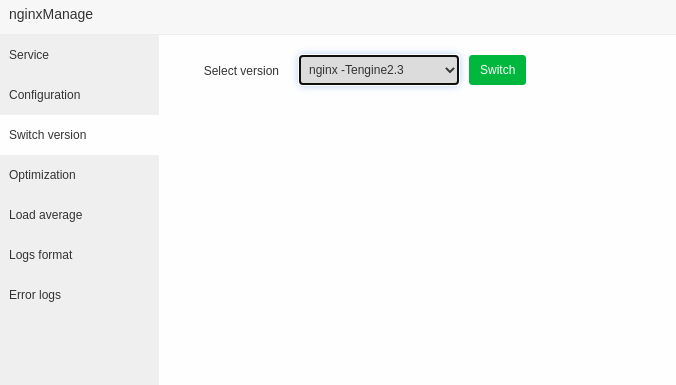New on LowEndTalk? Please Register and read our Community Rules.
All new Registrations are manually reviewed and approved, so a short delay after registration may occur before your account becomes active.
All new Registrations are manually reviewed and approved, so a short delay after registration may occur before your account becomes active.

















Comments
Last three versions:
[03/25/2021] Tengine-2.3.3 development version released (changes).
[08/20/2019] Tengine-2.3.2 development version released (changes).
[06/18/2019] Tengine-2.3.1 development version released (changes).
So no new updates.
It is based on the Nginx HTTP server and has many advanced features - so majority of features you be able to install yourself if you need them
Yeah if you read Tengine public change log, they're currently based on 2 major releases behind Nginx 1.18 stable, so they are missing 2x stable releases Nginx 1.20 and 1.22 and 2x mainline releases Nginx 1.21 and 1.23. The last CVE fix listed in Tengine is CVE-2019-9511 and doesn't include 2021 CVE, CVE-2021-23017 fixed in Nginx listed security fixes https://nginx.org/en/security_advisories.html. Of course, it could be that it doesn't apply to Tengine as well or their change log might be out of date.
So the question you need to ask yourself is if the unique Tengine only features are something you need/want enough to lose 2 years of Nginx development (1.20/1.22 and 1.21/1.23) for https://nginx.org/en/CHANGES ?
is tengine also nginx?

No difference, apart from some very specific features that if you need, it's better to compile nginx
Why you would ever use tengine when there is actively maintained openresty?
UPD. Oops, necrobump
Why you would ever use openresty when there is actively maintained httpd and relayd?
because of performance
As far as I know, Tengine originated from Taobao which is a famous and largest e-commerce website in Asia. So, is it mainly for large-scale web applications? and Tengine can handle more processes than Native NGINX? What do you think? 🤔
NB: I didn't use Tengine before.
Current status:
nginx current 'mainline', which is not 'stable', is v1.25 which was released soon (about 6 weeks) after v1.24 which nginx themselves list as the current stable version.
tengine current is 3.0 which is 100% compatible with nginx 1.24 (and probably based on it).
So, no, one does not "lose" 2 years.
Maybe important note: I personally do not care about or use either, so this is not a fanboy of either speaking here.
So, seen from a users perspective, tengine seems to actually be the better choice because while both are very similar, not only tengine is more open-source minded, but actually nginx (I guess, mainly after being owned by a corporation) plays what I consider ugly sales tricks to sell their 'plus' version which not only costs $$ but, making things even worse, uses a subscription model, i.e. you have to pay up each year.
So, the only two advantages I see with nginx is (a) nginx has been designed and (originally) implemented by russian developers who experience tells me tend to write more reliable code than chinese developers with whom my impression is that there is a not insignificant tendency toward sloppyness. (Please note that I wrote 'tendency', so it's not an absolute statement!). And (b) but that's just a guess, tengine might have less and/or lower quality documentation (and AFAIK not even a wikipedia entry).
But then, anyway, looking at it with a sense for reality, at least 90% of all web sites do not need either one. Both were designed with very, really very heavily visited web sites, as in "Even 1000 req/s is not good enough!". For the vast majority of web sites however 1000 req - and to be honest, even 100 req/s - are more than plenty enough.
Plus: Very often not the http server but the PHP, ruby, etc. crap engine and stuff is the problem (in terms of speed).